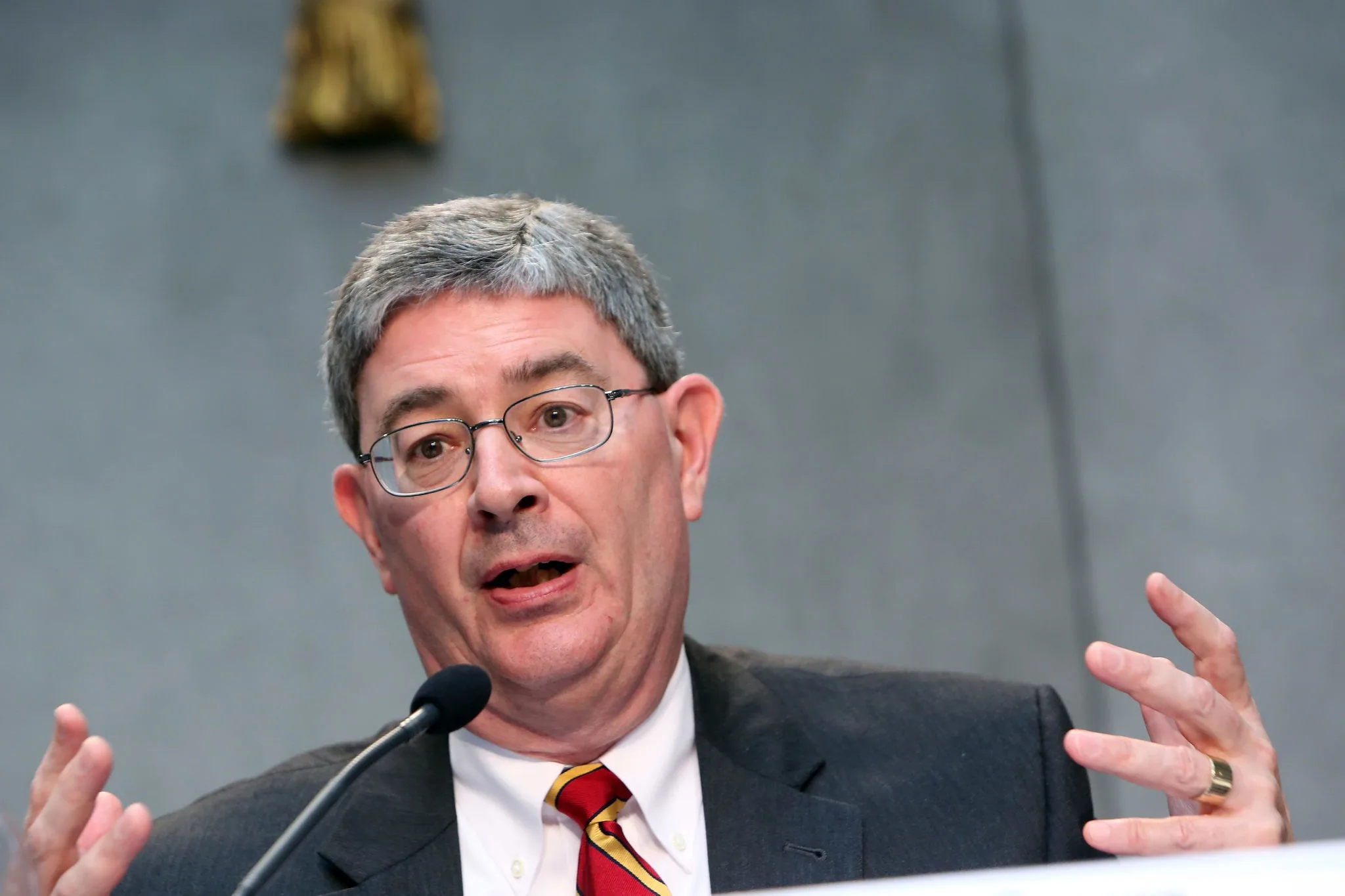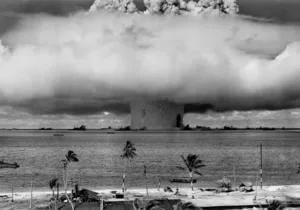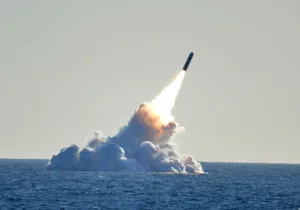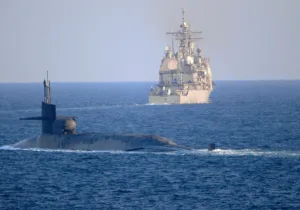In this latest episode of True North, Marc LiVecche continues a series of discussions on the morality of the atomic bombing of Hiroshima, 75 years ago. His guest is George Weigel, Distinguished Senior Fellow at the Ethics and Public Policy Center. The launch-point of their discussion is a recent column Weigel wrote for First Things. In it, he argues that while the Hiroshima bombing cannot be judged as morally right under just war rationale, it was, nevertheless, strategically right and saved countless lives. Because history is messier than abstract theory, Christians must be willing to engage in prudential judgments in order to help meet their moral responsibilities in a conflicted world in which, too often, no good moral choice is available. In engaging with arguments written against his position, Weigel helps clarify what robust, realistic, and deeply Christian political thinking looks like.
Recommended Reading:
George Weigel, “Truman’s Terrible Choice, 75 Years Ago”
John Keown, “A Terrible Choice Indeed”
Ed Feser, “Weigel’s Terrible Arguments”
See also:
Marc LiVecche, “Why the Atomic Bombing of Hiroshima Was the Moral Thing to Do” and Moral Horror
Strand, LiVecche, True North: Episode 1: Hiroshima
Rough Transcript
LiVecche: Hello everybody, welcome back to another edition of True North. I am your host Marc LiVecche. I am the executive editor of Providence A Journal of Christianity & American Foreign Policy, as well as Stockdale research fellow at the U.S Naval Academy, and it is my great pleasure to be here with George Weigel, who is a distinguished senior fellow at the Ethics & Public Policy Center and the author of some 27 books, but who’s counting. We are here to discuss an article he wrote for First Things Magazine, and on a subject that he’s written about in the past — the bombing of, the atomic bombing of Hiroshima. And it’s a subject that I’ve discussed before on this podcast. We’re going to get into it again, there is more to be said. So, George, thank you for being here.
Weigel: Nice to be with you again, Marc. And thanks for all you’re doing with Providence Magazine, that’s a real contribution to a very badly needed discussion in American public life today. So, kudos to you and your colleagues.
LiVecche: Well, wonderful. Thank you for that. And I think the subject matter that we’re going to get into today underscores your comments there. You wrote an article for First Things Magazine called, I believe, “Truman’s Terrible Decision”? 75 Years Later.”
Weigel: 75 Years Later. Yes, “Truman’s Terrible Decision, 75 Years Later.”
LiVecche: Would you just summarize quickly for those who haven’t read it? We’re going to link it below, but could you give us a summary of what you were trying to do in that essay?
Weigel: That article in First Things is my weekly Catholic press column which is syndicated to world really in the anglosphere. And I was prompted to write it by discovering recently a remarkable photograph of my father at age 24, two weeks after the formal Japanese surrender, then a young naval officer standing at the Japan, former Japanese naval base in Sasebo in Japan. And in addition to that photograph of my dad, he had taken a lot of what were then called snapshots in that primitive era of brownie cameras and whatnot of life around Sasebo, which was near Nagasaki, the second city to suffer the atomic bomb. And it suddenly, certainly I had often reflected upon the fact that my dad, who was in an amphibious flotilla that would have been involved in the invasion of japan, might not, almost certainly would not have lived had the war not ended when it did. But what struck me about those photographs was that virtually all of those Japanese civilians that he was taking pictures of would probably not have lived either. This put me in mind of a book I had read some while ago on based on Japanese military records about how the Japanese Imperial Army was planning to conduct the defense of Japan, in which there would have been in effect no civilians. Everyone was going to become a combatant in one form or another. So, this being the 75th anniversary of the end of the Pacific War, I tried to reflect perhaps to telegraphically in 750 words on this terrible decision. And I suppose I was trying to make several points. One is that however you judge the decision from the point of view of moral theology, Harry Truman was not the moral monster, that Hitler, Stalin, or later moral monsters. Truman took a decision which he believed would save lives, American lives and Japanese lives. Secondly, the more I have reflected upon this over the years, the more it has become clear to me at least that there really were no good moral choices here. Starving Japan into submission was not a particularly edifying choice morally. Continuing the firebombing of Japanese cities, which was already deeply problematic, was not a good choice. And doing nothing was not a good choice because given the politics inside japan at the moment, the control of the government by militant nationalist militarist fanatics, something had to be done. Doing nothing was not an option then. There was this fact of what do you, how do you morally think through the problem of invading a country in which there are no longer non-combatants. I mean, everybody has been turned into a combatant of a suicide bomber, a human torpedo attacking landing troops with pitchforks, and my dad was on Okinawa before the invasion of Japan. Okinawa was a complete bloodbath, right, as anybody who saw the film Hacksaw Ridge understood. So, I was in a sense trying to say that Truman, by his lights, made what I think he recognized was a terrible decision, but it was the least terrible decision to be made. Finally, I said in that column that there really is no way to vindicate that decision by the canons of the Just War theory, as I understand them, without descending into a kind of consequentialism or proportionalism that I don’t believe is an appropriate method of moral reasoning. So, we’re left with a situation here in which the moral theory doesn’t give us very clear guidance. The history is too sloppy that the tragedy of the human condition is too much in the forefront and the foreground of the decision. There are just times in history it seems to me where the moral theory and the historical reality cannot be aligned in a satisfactory way that does not make, and I think I indicated this in the column, that does not make Truman’s decision a morally correct decision but it may, and I believe does, make it a strategically correct and politically correct decision. The decision created the conditions for the possibility of a just peace, which is one of the aims of the Just War theory. So, it’s a very, very complicated business and to attempt to adjudicate this by an abstract set of standards that do not seem capable of recognizing the immediate complexities of the decision may help clarify certain matters of moral theory, but it would not have been terribly helpful, I don’t think, to Truman at the time.
LiVecche: So, if George Weigel was sitting in the Oval Office and Harry Truman turned to him and said, “I have heard you suggest that bombing Hiroshima will not be a morally correct decision, but it will be a strategically correct decision?” What does George Weigel, a biographer of popes, Catholic public intellectual, what does he say to Truman in that moment?
Weigel: He says what Stimson said, “you have a set of abhorrent choices and yet a choice must be made.” That doesn’t make the choice to choose the least abhorrent decision, does not make the decision not abhorrent, but this is what history has put in front of you now. And your conscience must make the call, and you submit yourself to the divine mercy. In the course, I think the situation in the last months of the Second World War in the Pacific was uniquely harmful given the nature of Japanese society and culture at the time. And I believe that in his conscience, Truman, who was not a moral monster, believed he was taking the least abhorrent decision. That doesn’t necessarily vindicate that decision by the canons of Just Warfare, but there may have been no decision under those circumstances that could be vindicated by the cannons of justice. So, to say that he chose the lesser of evils, and we can’t ever do that because that’s a kind of consequentialism or proportion, is both true in the abstract and, I think, not true in the order of practical reason, especially as it presented itself at the time. Now we can sit here 75 years later and game this out, which several people have done in response to my little column. I’ve been through all of those arguments before. I don’t think any of them make any sense, and the demonstration shot thing never made any sense. Suppose the demonstration didn’t work, you just made matters worse. You could always assume that Hiroshima was the demonstration shot for Nagasaki, they didn’t surrender. I do think that you have to put yourself in the position of the leadership of the United States at the time, and what they believed to be their real-world options, and if they believed that there were no good real-world options in the abstract. But yes, something had to be done. This had to be ended, and it had to be ended with the least bloodshed possible. And that they took that decision to use the atomic weapons at Hiroshima then, I think, one has to say that is of an order of magnitude different than Hitler deciding on the Final Solution or Stalin deciding on the Ukrainian hunger famine or Mao Zedong deciding on the Great Cultural Revolution, these are just not comparable realities, however it looks from an abstract point of view. And I’ve been thinking about writing about these things for 30 some years. I’m not against abstraction. I do recognize that while I don’t think Reinhold Niebuhr was a particularly great moral theologian, his sense of the inevitable tragic nature of history and politics in a fallen world is something that ought to be brought into play here in assessing the moral responsibility, or in assessing the character of the men who made the decision to use the atomic weapons.
LiVecche: Now one of the people who wrote against your article quoted Gaudium et spes, and he said that any, quoting, he says to the effect that “any military action or any action aimed indiscriminately at the destruction of entire cities of extensive area along with their civilian population is a crime against God.” Was Hiroshima a crime against God?
Weigel: I think it’s important to recognize again the situation at the time. That canon of Just War thinking had been breached five years before — Germans and Rotterdam. I think we know, whatever we thought we were doing with the eighth air force in Europe, the strategic bombing survey after the war showed that the notion of precision daylight bombing was not really working terribly well. There’s of course the Dresden case, that cannon had been breached a long time ago. And that’s in a sense horrible, terrible, abhorrent, but that was the context of the time. I have no problem with that statement in Gaudium et spes would the world were constructed so that everyone would be in a position to observe that count, but that was not the situation at the time. And that’s not to say that well, because everyone was doing it, therefore it was right that we did, right. There’s a lot to answer for in the way even good people conducted themselves during the Second World War. It was not, this is not a simple business. What I’m talking about, and what Professor Fizer might have missed, was the question, “Do we put Truman in the same category as, you know, Goring with Rotterdam, or the Brits with Dresden, or Curtis Lemay with the fire bombings. I mean, Stalin with all the things, he these just seems to me to be hard to define perhaps in abstract terms. But in existential terms, what Truman said to go do is not in the same category as what Stalin said to go do in terms of the Holodomor, or Himmler and Heydrich said to go do in terms of the Shoah. At some level of abstraction, yes, that these look like similar things. Existentially, I don’t think they are. Intention matters. Is that a deciding factor? Intervention certainly matters. It’s not, as I said in the column, you cannot turn the Just War theory into the kind of pretzel that would say yeah, this was a morally satisfactory use of discriminative force. I think that’s particularly true of Nagasaki. I mean, I think Nagasaki is a harder case. Hiroshima was the headquarters of the Japanese Second Army, I believe it was at the time. I think we did, with memory serves, try to provide some civilian, there were leaflets dropped on parachute, etc. But again, the existential situation was one in which because of the culture, a certain political leadership, a certain ruthlessness of regime, that really wasn’t going to work too well, the attempt at advanced civilian.
LiVecche: You have been in pains to say that Truman was not a moral monster. Some would say well maybe not, but he was a consequentialist, which in their minds is essentially the same thing now.
Weigel: Well, they would be wrong I think. I mean, I think there, as I said, there are historical circumstances, and this seems to me one of them, where there are no good choices. And yet a choice must be made. So, if you opt for what you believe in conscience to be the lesser of evils that doesn’t get you out of the box of moral responsibility, but it may diminish the degree of moral responsibility that you will carry before we believe, I believe, the judgment seed of God.
LiVecche: That’s right. Right.
Weigel: I think the other thing that needs to be stressed here, and I’m sorry Marc, the other thing is that, and again here’s where somebody will say, “Well you’re being consequentialist.” Which I’m not, I’m simply trying to describe a historical reality. Hiroshima and Nagasaki broke a fever in Japanese political circles, in some strange sense empowered the emperor to assert himself in a way which he had not done before. And therefore, helped create the conditions for the possibility of replacing this culture in which the idea of surrender simply didn’t exist. The other guy quits, and then you say okay it’s over. With what is now a functioning democracy, that is by all measures a much more humane society than it was at the time. So, in weighing the historical judgment on Harry Truman or Henry Stimson and whoever else was involved in this decision, I think you have to take that into account. You have to take into account the saving, as I pointed out in the column, of perhaps, my wife’s uncle was a British POW and in the real River Kwai at the time they knew, they expected all to be, he would have been gone. So, occupied lands, yeah, I mean, these are the people who killed 250,000 Chinese civilians because of the Doolittle Raid in 1942. So, that all I think has to figure into the historical analysis and the judgment on where in the list of abhorrent choices placed before political leaders do you rate this.
LiVecche: So, I’m teaching at the U.S. Naval Academy. You’ve been there to speak before, you’ve been at West Point, you see these young men and women with aspirations of public service either in the military or future political leaders, what you’re describing to some as being the kinds of choices that our political leaders need to make, which strikes some is therefore being the kind of vocation that a Christian simply cannot enter into now, you’ve touched on this already, but to talk to it specifically, how can the political realm, despite these kinds of abhorrent choices that are sometimes necessary to make, how can a Christian serve in such a realm?
Weigel: Well, I think the role of the Christian is to try to do everything in his or her capacity, either as a serving officer in the military or as a public official, to limit the possibility of abhorrent choices having to be made. That’s, I think that’s the answer to that. This is an imperfect world. It is always going to be an imperfect world until the Lord returns in glory. And if Christians simply take what some people call the “Benedict option” and absent themselves from that world, then a powerful witness to the possibility that things might be made incrementally better in history will be lost. If you take the Christians out of the picture, you get Stalin. That’s what you get. You get Mao Zedong. You get Hitler. You get Pol Pot. I mean, one of my favorite stories is of two young men, both expatriates of a sort, one son of Polish Jews who had moved to France in the 1920s, the other a Cambodian intellectual. Sat in the same political science lectures at the Sorbonne in the early 1950s. One of them was named Jean-Marie Lustiger, and he became the Archbishop of Paris. The other was named Pol Pot. They were in the same classes, not just classmates, but in the same classes. Now I’ve often said if I had the skills of a novelist, which I do not, you could write a great novel about the history of the late 20th century beginning with those two guys in that poli sci 101, or whatever it was, classroom at the Sorbonne. One guy becomes a blessing to his people and others. The other becomes a curse. That’s what taking the God of the Bible and Christians out of the public realm, it so makes things worse.
LiVecche: Absolutely. So, maybe one final question. This is a bit of, a bit maybe too abstract, but so, it’s similar to those two. They go through some of the same experiences; they come out in very different ways. George Weigel becomes the kind of Catholic who thinks about Hiroshima in the particular way that he does. Other very serious thinkers, Catholic thinkers that we both know and that are friends and colleagues and people whose writings we admire, have been raised Catholic, are Catholic thinkers, and they’ve gone a different direction on Hiroshima. Can you point to what has made you think the way you do about such complex moral issues?
Weigel: Marc, let me say as we’re concluding this, I mean, I make no claims to infallible judgment, right. I tried to point out some complexities which I think are worth pondering to vindicate Truman strategically and politically. In the broadest sense of politics adjusting peace, even if that cannot be done through the canons of Just War theory. So, the people who said I’m dead wrong about this could be right. I do find some of the critics on the left a bit amusing. People who think Elizabeth Anscombe is literally out of her mind on contraception and abortion and believe she’s infallible on Harry Truman, you know, are a bit confused themselves. I think perhaps one part of this with me is I’ve actually worked in politics. I mean, I wrote speeches for Henry Hyde for 20 years. I worked with Scoop Jackson in his last years in the Senate. I’ve worked with other members of Congress on, particularly on human rights and religious freedom issues, for almost 40 years now. I have I think some intuitive sense of what you can get done and what you can’t get done in the political realm. And that may have, I hope it hasn’t made me callous towards some of the questions that are raised about Hiroshima, Nagasaki, and a lot of other things, but it has given me perhaps a more Niebuhrian sense of the complexities of history and politics in a fallen world than those who have not had the opportunity to work in the nitty-gritty of politics before. I mean, I’ve had presidents of the United States ask me what they should do in particularly difficult situations. That’s a sobering experience. I mean, this is not, we’re not, in the realm of abstraction here. And that again is not to denigrate the well in the realm of abstraction, but it does give you a sense of the fact that this is a very contingent business political choice. And the weighing of goods and evils in these, in some of these, situations is really much more complex than I think some of my friends and colleagues are prepared to admit. There is a huge gray area here, and the task of navigating that is not an easy one. So, that’s what occurs today.
LiVecche: I think that’s right. Well, from my perspective you are not calloused. But to channel Nigel Biggar, maybe there has been a thickening of your skin that gives you the courage to grasp the thistles and the nettles of reality, and for that I’m grateful. I think that’s saying something incredibly important. George Weigel, distinguished senior fellow at the Ethics & Public Policy Center, thank you very much for your time. I wish you a good day.
Weigel: Thanks Marc, good to be with you.








 Sponsor a student for Christianity & National Security 2024
Sponsor a student for Christianity & National Security 2024